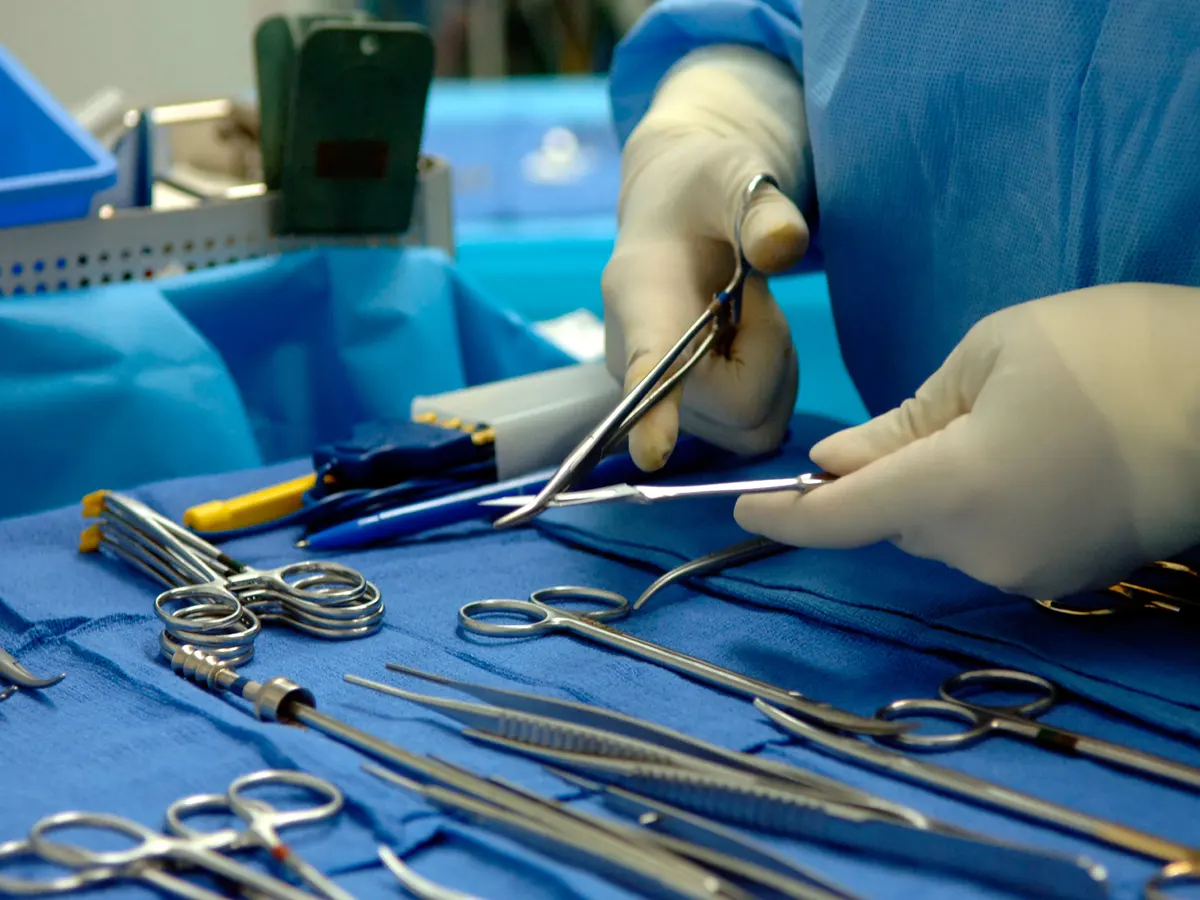Topic: 21 Steps to become a surgeon
Introduction to Become a Surgeon: A Voyage into Mastery
Embarking on the journey to become a surgeon is akin to setting sail on uncharted waters, a formidable task that promises both treacherous challenges and the allure of rich rewards.
Within the realm of medicine, Surgeon stands as a unique fusion of artistry and scientific precision, demanding from its aspirants a profound commitment to a rigorous and demanding process.
This essay endeavors to illuminate the winding path of “become a surgeon”, unraveling the intricacies of the 21 pivotal steps that constitute the roadmap toward mastery.
As we delve into this exploration, we will unravel the multifaceted layers of the become a surgeon journey, where challenges metamorphose into triumphs, and transformative experiences become the crucible for honing skills that transcend the ordinary.
The realm of surgery is a dynamic fusion of technical expertise, empathetic care, and a relentless pursuit of perfection.
Doctors are not mere practitioners; they are artists sculpting the human form, scientists deciphering the complexities of the body, and compassionate caregivers standing at the crossroads of life and death.
To undertake the mantle of a doctor is to embrace a calling that demands not only cognitive prowess but a unique blend of dexterity, resilience, and unwavering dedication.
In this essay, we embark on a guided tour through the labyrinthine journey of “become a surgeon”, unraveling the layers of commitment and sacrifice that underpin the quest for surgical mastery.
Each step in this journey represents a rung on the ladder of proficiency, an ascent that requires not only the acquisition of knowledge but the embodiment of the principles that define surgical excellence.

How to become a Surgeon: A Voyage into Mastery
As we navigate through the narrative, the challenges inherent in this pursuit will come to the forefront.
These challenges are not merely hurdles to be overcome; they are crucibles of transformation, shaping aspiring doctor into individuals capable of withstanding the intensity of the surgical arena.
From the early stages of decision-making to the specialized realms of surgical practice, this essay will elucidate the challenges that, when met with resilience and determination, become stepping stones toward “become a surgeon”.
Moreover, woven into the fabric of this exploration are the rewards that await those who navigate this arduous journey.
The satisfaction of healing, the privilege of restoring lives, and the intellectual fulfillment derived from mastering the intricacies of the human body constitute the bountiful harvest of a doctor’s toil.
It is through the crucible of challenges that the true essence of these rewards is unveiled, transforming the journey into a tapestry of experiences that transcends the ordinary.
As we embark on this expedition into the heart of surgical mastery, each step serves as a testament to the transformative power of dedication and the unwavering commitment to the pursuit of excellence.
Through the lens of the 21 steps, this essay invites aspiring doctors and curious minds alike to peer into the world where the scalpel meets artistry, where science converges with compassion, and where the journey to “become a surgeon” unfolds as a voyage into mastery.
The Decision to Pursue Surgery: Unveiling the Heart of Aspiration
For many individuals, the decision to pursue a career in surgery stems from a combination of personal characteristics, innate desire, and a deep motivation to positively impact others’ lives.
Those who are truly passionate about “become a surgeon” view it as more than just a career choice – it’s a lifelong commitment to uncovering the mysteries of the human body, navigating the complexity of illness, and using the scalpel as a tool for healing.
When considering the decision-making process that motivates individuals to “become a surgeon”, one cannot ignore the role that curiosity plays.
Aspiring doctors are driven by an insatiable thirst to understand the workings of the human body.
This curiosity goes beyond simply memorizing facts from textbooks, igniting a passion for exploration and discovery.
It’s an interest in the intricacies of physiology and anatomy that motivates individuals to gain in-depth knowledge, dig deeper into layers of complexity, and appreciate the symphony of life that is the human body.
Moreover, the appeal of surgery extends far beyond the confines of the operating room. It encompasses the very essence of what it means to be human – the drive to understand, to learn, and to heal.
For those who are committed to this journey, the path to becoming a surgeon is both challenging and immensely rewarding.
Through their work, they have the opportunity to make a real and lasting impact on the lives of others, using their knowledge, skills, and expertise to help bring about positive change.
Beyond curiosity, a passion for problem-solving becomes the lodestar guiding aspiring doctors on their journey.
The intricacies of surgical procedures, the puzzle of diagnoses, and the constant challenge to innovate and refine techniques are magnetic forces that draw individuals toward the surgical vocation.
The operating room transforms into a stage where intellect meets dexterity, and each surgical intervention becomes a problem to be meticulously solved—a puzzle that, when unraveled, brings healing and restoration.
An unwavering commitment to excellence acts as the crucible where aspirations are forged into a resolute determination to master the craft of surgery.
Excellence in surgery is not a mere aspiration; it is a commitment to the highest standards of care, precision, and continuous improvement.
The decision to pursue surgery is, therefore, a commitment to a journey of perpetual refinement—a journey where every stitch, every incision, and every decision is a step toward mastery.
Educational Requirements: Navigating the Rigorous Path
The journey towards becoming a doctor is a thrilling and challenging one that requires a deep commitment to academic excellence and a passion for helping others.
It all begins with the pursuit of a bachelor’s degree, which serves as the foundation for a lifelong career in medicine.
During the bachelor’s degree program, aspiring doctors are introduced to the fundamental principles of science and medicine.
They learn about anatomy, physiology, microbiology, immunology, pharmacology, and other related subjects. The curriculum is designed to provide students with a strong academic foundation and prepare them for the rigorous challenges that lie ahead.
After completing the bachelor’s degree, the journey continues with medical school, which is the most transformative phase of the journey.
Here, students gain hands-on experience in clinical settings, learning how to diagnose and treat a wide range of medical conditions.
They are exposed to the complexities of the human body, the nuances of diagnosis, and the foundational principles of surgical intervention.
The medical school curriculum is designed to be challenging and demanding, as it requires students to balance theoretical knowledge with practical application.
Students are trained in a wide range of medical specialties, including pediatrics, surgery, internal medicine, and more. They are taught how to communicate effectively with patients and their families, and how to work in a team environment.
The next phase of the journey is the residency program, which is an intensive and demanding period of training that prepares aspiring doctors for a lifelong career in medicine.
Residency programs range from three to seven years, depending on the specialty, and involve extensive training in a clinical setting.
During this phase, residents work under the supervision of experienced physicians and surgeons, gaining valuable hands-on experience in patient care and treatment.
In conclusion, the journey towards “become a surgeon” is a fascinating and challenging one that requires a deep commitment to excellence and a passion for helping others.
It is a journey that demands hard work, dedication, and perseverance. But for those who are willing to take on the challenge, the rewards are immense, both in terms of personal fulfillment and the ability to make a positive impact on the lives of others.

Become a Surgeon: Surgery Education
A residency program is more than a training ground; it is an immersive experience where theoretical knowledge is translated into hands-on expertise.
The aspiring doctor navigates through rotations, facing a diverse array of medical cases that challenge and refine their skills.
The residency program is where the doctor’s mettle is tested, where adaptability and resilience become indispensable qualities. It is within this crucible that the aspiring doctor evolves, transitioning from a student to a practitioner, and from a novice to a skilled professional.
The educational journey, marked by rigorous milestones, lays the foundation for a successful career in surgery. Academic achievements, qualifications, and a commitment to continuous learning become the bedrock upon which the doctor’s competence is built.
The journey, however, does not end with the acquisition of degrees but continues as a perpetual pursuit of knowledge and refinement—a journey that propels the doctor forward on the path of mastery.
In unraveling the decision-making process and navigating the educational requirements, it becomes evident that the journey to “become a surgeon” is not a mere sequence of steps but a profound odyssey—a pilgrimage marked by the fusion of passion, commitment, and unyielding dedication to the pursuit of surgical excellence.
We are providing you with over a hundred E-books on Medbook1 in the Surgery collection. Here are some of the resources that you can use through your path:
Clinical Experience and Residency:
The crucible of clinical experience and residency is where aspiring doctors forge their skills and develop the hands-on expertise essential for their future practice.
This phase is characterized by immersive training, exposure to a variety of medical cases, and the honing of surgical techniques under the guidance of seasoned mentors.
The importance of this phase cannot be overstated, as it not only builds technical proficiency but also cultivates the resilience and adaptability necessary for the dynamic field of surgery.
This section delves into the transformative nature of clinical experience and residency, illuminating the vital role they play in shaping competent and confident doctors.
Specialization in Surgery:
Within the expansive field of surgery, numerous specializations offer aspiring doctors the opportunity to tailor their careers to specific areas of interest and expertise.
Whether it be cardiovascular surgery, orthopedic surgery, or neurosurgery, the process of becoming a specialized doctor involves additional training and a commitment to continuous learning.
This section explores the diverse landscape of surgical specializations, guiding aspiring doctors on how to navigate and choose a path that aligns with their passions and professional goals.
Steps to Become a Surgeon – Overview:
Embarking on the journey challenges of “become a surgeon” through a series of well-defined steps.
From the initial decision to pursue surgery to the culmination of years of education, training, and specialization, the path to “become a surgeon” can be conceptualized as a comprehensive roadmap.
In this section, we provide a panoramic overview of the 21 steps that encapsulate the surgical journey. Each step serves as a building block, contributing to the development of a well-rounded and proficient doctor.
Books and Resources for Aspiring Surgeons:
The quest for knowledge is an integral aspect of a doctor’s journey, and a curated selection of books and resources can serve as valuable companions on this path.
From foundational textbooks to cutting-edge research publications, this section recommends essential reading materials that can enhance the theoretical knowledge and practical skills of aspiring doctors.
The exploration of literature and resources becomes a key facet of the doctor’s continuous pursuit of excellence, providing insights, perspectives, and updates on the latest advancements in the field.
Challenges of Become a Surgeon:
The path to becoming a doctor is fraught with challenges, demanding resilience, dedication, and a tenacious spirit. This section delves into the multifaceted challenges faced by individuals on this arduous journey.
From the grueling demands of medical education to the emotional toll of dealing with life-and-death situations, aspiring doctors navigate a terrain that tests their physical, emotional, and academic mettle. Strategies for overcoming these challenges are explored, offering guidance to those on the brink of embarking on this formidable yet rewarding career path.

Become a Surgeon: The Challenges of being a surgeon
Is it possible to become a surgeon?: Dispelling Myths and Affirming Possibility
Addressing the common doubts and questions surrounding the feasibility of “become a surgeon” is imperative for dispelling misconceptions and fostering a realistic understanding of this demanding yet rewarding career path.
Aspiring surgeons often find themselves grappling with uncertainties about the attainability of their dreams, questioning whether the path to “become a surgeon” is an insurmountable peak or a climbable summit.
This section confronts prevailing doubts, providing a candid portrayal of the demands and possibilities within the realm of surgery.
It emphasizes the transformative power of determination, debunking myths surrounding the exclusivity of surgical careers and affirming that, indeed, it is possible to become a doctor with the right mindset, commitment, and perseverance.
One common doubt that looms large in the minds of aspiring doctors is the perceived exclusivity of surgical careers. The prevailing notion that “become a surgeon” is an elusive feat reserved for an elite few can be a deterrent for those contemplating this path.
However, the reality is far from this misconception. While it is undeniable that the journey to “become a surgeon” is rigorous and challenging, it is essential to recognize that the doors to this profession are not closed to those with genuine passion, determination, and a commitment to excellence.
The transformative power of determination emerges as a central theme in debunking myths surrounding surgical careers.
Determination is not merely a desirable trait; it is the driving force that propels individuals through the formidable challenges encountered on the path to “become a surgeon”.
From the demanding educational requirements to the arduous clinical experiences, determination acts as the crucible in which aspirations are refined and solidified.
The journey to becoming a surgeon is a testament to the fact that it is not the absence of challenges but the resilience to face and overcome them that defines the trajectory of success.
Commitment, another cornerstone in the foundation of surgical success, stands as a counterpoint to doubts about the feasibility of this career path.
Commitment in the context of “become a doctor” is a multifaceted dedication — a commitment to lifelong learning, a commitment to the well-being of patients, and a commitment to the highest standards of ethical practice.
It is this unwavering commitment that distinguishes doctors and transforms them from mere practitioners into pillars of healthcare excellence.
Perseverance, the third pillar supporting the feasibility of “become a doctor”, is the steadfast resolve to endure the challenges, setbacks, and uncertainties encountered along the way.
The surgical journey is not linear; it is marked by peaks and valleys, requiring individuals to navigate through the ebbs and flows with resilience.
Perseverance is the compass that guides aspiring doctors through the intricate terrain of medical education, clinical experiences, and specialized training.
In essence, “become a surgeon” is not a matter of innate talent or exclusive privilege; it is a matter of mindset, commitment, and the unwavering perseverance to weather the storms that inevitably arise on this transformative journey.
Aspiring doctors must recognize that their dreams are within reach, provided they cultivate these essential qualities and navigate the challenges with resilience and determination.
Conclusion:
In conclusion, the journey of “become a surgeon” is an odyssey marked by dedication, resilience, and an unwavering commitment to the pursuit of excellence.
The 21 steps outlined in this essay provide a holistic view of the path, from the initial decision to specialize, through the rigorous educational and clinical phases, to the ultimate realization of becoming a proficient and specialized surgeon.
The decision to embark on this journey is not to be taken lightly, as it demands sacrifice, perseverance, and a relentless pursuit of knowledge.
Despite the challenges, the rewards are immeasurable, as surgeons hold the power to heal, restore, and make a lasting impact on the lives of their patients.
Aspiring surgeons, armed with the insights and guidance provided in this essay, can navigate the complexities of their journey with a clearer understanding of the steps involved and the determination required to succeed in this noble and transformative profession.
is an elusive feat reserved for an elite few can be a deterrent for those contemplating this path. However, the reality is far from this misconception.
While it is undeniable that the journey to becoming a doctor is rigorous and challenging, it is essential to recognize that the doors to this profession are not closed to those with genuine passion, determination, and a commitment to excellence.
The transformative power of determination emerges as a central theme in debunking myths surrounding surgical careers. Determination is not merely a desirable trait; it is the driving force that propels individuals through the formidable challenges encountered on the path to “become a surgeon”.
From the demanding educational requirements to the arduous clinical experiences, determination acts as the crucible in which aspirations are refined and solidified.
The journey to “become a surgeon” is a testament to the fact that it is not the absence of challenges but the resilience to face and overcome them that defines the trajectory of success.
Commitment, another cornerstone in the foundation of surgical success, stands as a counterpoint to doubts about the feasibility of this career path.
Commitment in the context of becoming a doctor is a multifaceted dedication — a commitment to lifelong learning, a commitment to the well-being of patients, and a commitment to the highest standards of ethical practice.
It is this unwavering commitment that distinguishes doctors and transforms them from mere practitioners into pillars of healthcare excellence.
Perseverance, the third pillar supporting the feasibility of “become a surgeon”, is the steadfast resolve to endure the challenges, setbacks, and uncertainties encountered along the way. The surgical journey is not linear; it is marked by peaks and valleys, requiring individuals to navigate through the ebbs and flows with resilience.
Perseverance is the compass that guides aspiring doctors through the intricate terrain of medical education, clinical experiences, and specialized training.
In essence, “become a surgeon” is not a matter of innate talent or exclusive privilege; it is a matter of mindset, commitment, and the unwavering perseverance to weather the storms that inevitably arise on this transformative journey.
Aspiring doctors must recognize that their dreams are within reach, provided they cultivate these essential qualities and navigate the challenges with resilience and determination.

Become a Surgeon: 21 Steps to become a surgeon

